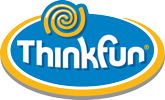Playfully Based on Serious Research From Martin Research Consulting
Just in time for Hour of Code, a new research study released by ThinkFun® and Martin Research Consulting suggests that Robot Turtles, the only board game that teaches coding skills to preschoolers, offers myriad benefits beyond high income potential. In a study of 125 families recruited from an online national database, game play with Robot Turtles prompted alluring observations usually associated with chi-chi schooling, expensive tutoring and Buddhist retreats, including these Top 10 zingers:
- Your kids will spot a liar. Kids playing Robot Turtles are more likely to notice when people aren’t being honest and immediately notice when people do not smile sincerely. Parents were warned to keep their child away from family gatherings and keep Santa talk to a minimum.
- They’ll give Gwyneth Paltrow a run for her money. Game play with Robot Turtles generated marked upticks in creative ideas, originality, innovation, multiple solutions and ponderings about the future. This new creative awareness will no doubt be razor-focused on your blah wardrobe and home furnishings.
- You’ll save loads on family therapy bills. A love for tackling complex problems, problem-solving finesse and the ability to identify and correct mistakes was heightened during game play. Just imagine how you’ll use that $200 an hour next year…
- Better hope for headphones under the tree. Asking “Why?” is a good thing, right? (Keep telling yourself that.) After kids played Robot Turtles, their curiosity increased as did their tendency to think about and reason why people do the things they do. Tell them you don’t understand your mother-in-law either.
- Dust off those chore lists. Robot Turtles prompted children to more frequently help out, stay on task and think about things. Preschool may be too early to introduce chimney cleaning, but a dad can dream.
- You may feel inferior amid the Gandhi-like demeanor. Kids playing Robot Turtles were considered better communicators, less likely to wrest control of a situation and more family-focused. Usually that kind of behavior doesn’t happen until mid-December.
- Wave bye-bye to meltdowns. Children’s ability to handle failure well doubled. (The researchers were quick to add that children’s view of parental failure may not be handled as seamlessly.)
- You’ll be smarter than a 5th grader! Parents also got a boost after Robot Turtles game play, seeing improvements to new ideas, originality, creativity and problem solving. Behold your wondrousness – now go ask for that raise.
- Sheryl Sandberg might not like this one. Yes, the B word. Kids playing Robot Turtles were viewed as more bossy by their parents. But if bossy means they’re helping out around the house, handling failure better and more creative, family-focused, and flexible? We’ll take it!
- You’ll never look at Candyland the same way again. Mr. Mint’s a great guy but kids playing Robot Turtles improved intellectual capacity and executive functioning skills that provide the basis for coding and 21st century thinking. (Plus they got to have fun with their family and make silly turtle noises.)
Full report by Martin Research Consulting is available on ThinkFun’s website.
About Robot Turtles
Robot Turtles is the only board game to teach coding skills to kids as young as four, and the only screen-free resource for this pivotal age group. Robot Turtles was a Kickstarter sensation, graced the front page of the New York Times and has garnered awards since its national introduction last summer, including Teachers’ Pick by Scholastic Instructor and Best Toy for Kids by the American Specialty Toy Retailing Association. Robot Turtles was invented by Seattle software entrepreneur Dan Shapiro who wanted to spend quality time with his then four-year-old twins and share what he feels is his single greatest superpower – the skill of programming. For more information, visit www.thinkfun.com/products/robot-turtles.
About Martin Research Consulting
Martin Research Consulting provides custom research related to youth, education and the Millennial generation. With over 20 years’ experience monitoring and understanding trends and developments in these areas, Dr. Suzanne Martin works with clients to understand their unique needs and customize research solutions.
Editor’s Notes
Contact: Elizabeth Shea, Shea PR – sheapr@cox.net, 703.472.3921
Available for interviews:
- Bill Ritchie, Co-Founder and President, ThinkFun
- Suzanne Martin, Ph.D., Martin Research Consulting
About ThinkFun, Inc.
For 32 years, ThinkFun Inc. has been dedicated to creating games that spark curiosity, cultivate confidence, and nurture life-long learners. Our games encourage interest in Science, Technology, Engineering, Art, and Math (STEAM), while generating excitement for a world of learning through play. Innovation, creativity, value, and fun are the four elements that comprise the development of every game. Ignite the mind, and change the world for each player.
www.thinkfun.com
Facebook: https://www.facebook.com/ThinkFunGames
Twitter: https://twitter.com/thinkfun
Instagram: https://www.instagram.com/thinkfun/
